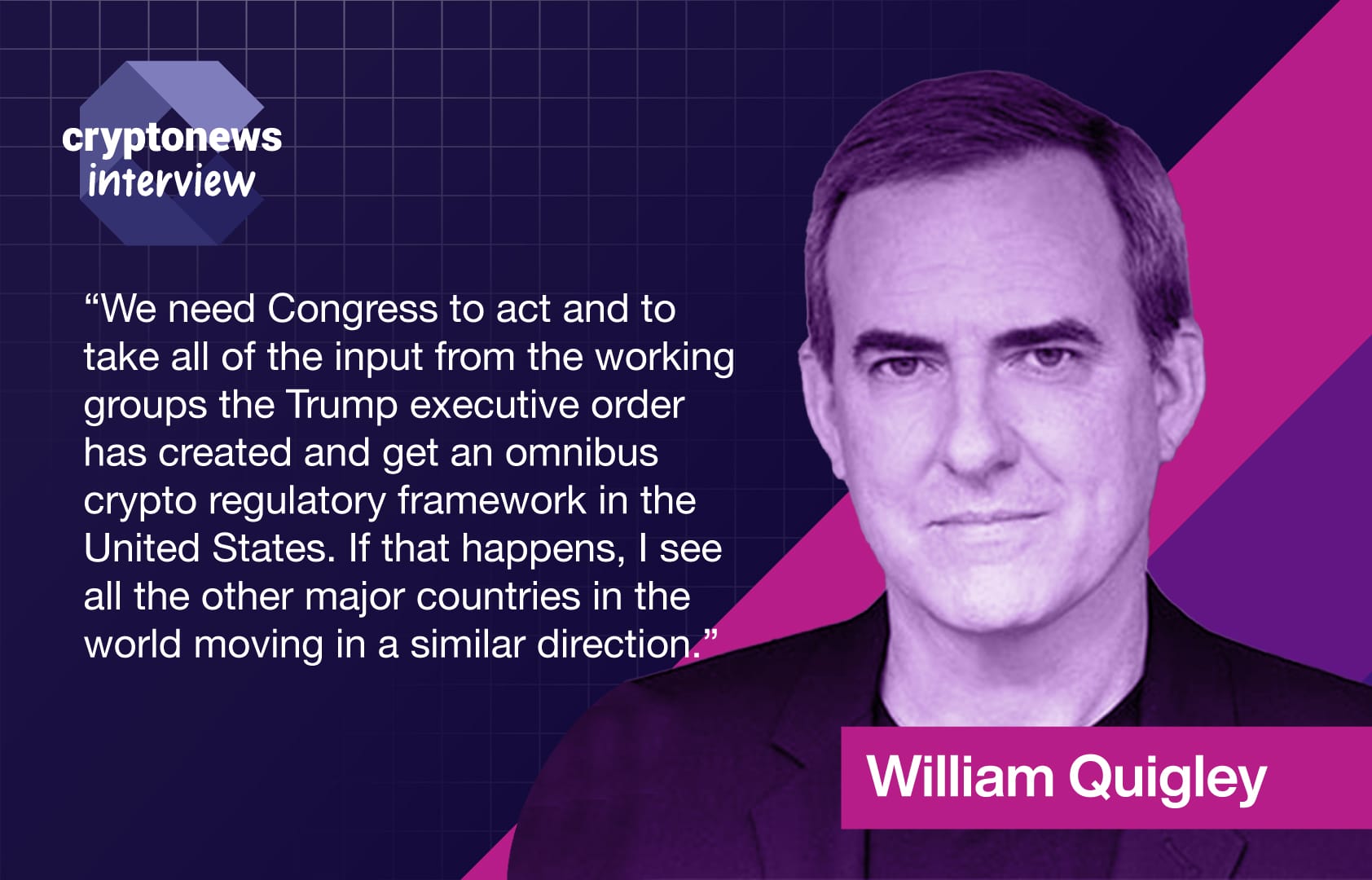How Tether Co-Founder William Quigley Views Crypto Regulations in Trump’s Second Term
Donald Trump’s re-election has led to expectations of major changes in U.S. cryptocurrency regulations. Recent executive orders suggest that regulatory changes could soon affect the cryptocurrency industry. In an interview with Cryptonews , William Quigley, co-founder of Tether and WAX, shared his insights into what the next four years under Trump could mean for the industry. Quigley explained that the administration’s pro-crypto stance , along with key appointments and legislative efforts, could lead to clearer regulations. He also stressed the role of the private sector in shaping future of cryptocurrency regulations . Trump’s Second Term and the Future of Crypto Regulation Trump’s signals of potential changes in crypto regulations contrast sharply with previous administrations’ inconsistent approaches. Under Trump, there could be an emphasis on installing pro-crypto figures and fostering private sector involvement in virtual assets. Quigley remarked on the shift, “The Obama administration and the Biden administration in terms of how they thought about crypto, they were wary of it and Congress was not moving forward with any regulation. They didn’t seem to see it as important or terribly problematic either, with the exception of one federal agency, the SEC.” “The Trump executive order is very positive towards crypto, the statement that Trump wants the U.S. to be a leader in the crypto industry,” Quigley added. These changes are expected to create a more predictable regulatory environment, reducing uncertainty and supporting market stability. As the administration moves forward, regulatory decisions will determine how the government interacts with the digital currency sector. Establishing the Digital Asset Working Group President Trump’s executive order led to the creation of the President’s Working Group on Digital Asset Markets within the National Economic Council. This group is responsible for reviewing existing regulations and proposing clearer guidelines for the digital asset sector. Quigley shared his views on the impact of these developments, “The Trump executive order has created and get an omnibus crypto regulatory framework in the United States. And if that happens, I see all the other major countries in the world moving in a similar direction.” “To me, [the executive order] seems quite fast because there is so much to consider here, but I think before the Trump term ends, individuals will have ability to use stablecoins much more freely than they do now.,” said Quigley. The working group is tasked with crafting a federal regulatory framework specifically for digital assets like stablecoins , which will involve detailed considerations on how these assets are issued and operated within the U.S. The crypto industry awaits the Working Group’s report, due within 180 days, anticipating targeted legislative proposals that could redefine the regulatory environment and enhance market stability. Quigley Discusses Bank Reluctance The U.S. banking sector remains cautious about cryptocurrency due to unclear regulatory guidance and the potential for severe penalties. This hesitancy persists despite more positive remarks from figures like Federal Reserve Chairman Powell, who recently commended banks for their handling of cryptos . JUST IN: 🇺🇸 Federal Reserve Chair Jerome Powell says "banks are perfectly able to serve crypto customers." pic.twitter.com/IiFJhA8Qg3 — Watcher.Guru (@WatcherGuru) January 29, 2025 William Quigley highlighted the core issues, “Banks are still slow. This might be because they’ve gotten so much crosstalk over the years with what they’re allowed to do and not allowed to do.” “Any positive messaging from the White House and from the Federal Reserve is very good for us,” Quigley further explained. “But for these institutions, I think they need black and white guidance.” He also reflected on the broader implications of this reluctance, “In any major financial institution in the United States, there are thousands, maybe tens of thousands of employees who are primarily just compliance oriented people. There’s all these regulatory bodies at the federal level, and some similar ones at the state level, many of whom either give no guidance on crypto, or who give conflicting guidance.” #Bitcoin took 14 years to reach $100K. $200K could come by summer 2025. pic.twitter.com/KK1iIkAaSS — William E. Quigley (@WilliamEQuigley) January 15, 2025 In traditional banking systems, clarity and compliance remain paramount. The banking sector’s cautious approach to crypto may change in the future, but currently, this wariness serves as a major obstacle to wider acceptance and integration of these technologies. The Need for Congressional Action in Crypto Regulation Cryptocurrency regulation in the U.S. suffers from inconsistencies due to multiple agencies managing different aspects without a unified approach. This fragmented oversight has highlighted the need for a single regulatory body to provide clear and consistent governance. Trump’s recent executive order is seen as a pivotal step that might prompt Congress to establish a unified regulator, which could help reduce confusion and solidify the U.S.’s position in the global crypto market. “We can’t have the IRS calling it property, the CFTC saying, no, it’s a commodity, the SEC saying it’s a security, and then the U. S. Treasury forever saying, no, these are currencies, and that existed for years,” said Quigley.
CryptoNews2025/02/08 01:50 

